You may be asking yourself, “Hey, where are VICE’s usual pissy yet strangely on-point reviews? I was looking forward to reading about the latest release from my favorite _____-wave band!” Well, this month we decided to do things a little differently, apropos of our Syria Issue. Below, you’ll find reviews of (mostly) Syrian music, written by Syrian Americans, or in the case of Shalib Danyals, a person who has spent a shitload of time in the country. So far, Middle Eastern music hasn’t really had a ton of crossover appeal—unlike J-pop, K-pop, or Yanni, for instance. That said, you’ve probably been exposed to small doses of Middle Eastern music at some point, maybe without even knowing it.
The thing about a country at war is that what you hear on the news revolves almost exclusively around violence, suffering, and destruction. Hence we felt it relevant to offer insight into the listening habits of Syrians. Of course, the volatile political situation does change things and offers worrisome inspiration. Some Syrian artists have reflected on the turmoil of recent months via their songs, while others avoid the situation entirely—probably because weighing in on the conversation can easily get a musician thrown in prison or even killed.
As far as the “scene” goes over there, trends in music aren’t all that much different from their Western counterparts. Saccharine, hook-heavy pop reigns supreme. A couple of singers made popular by the Arabic version of the Idol franchise (Arab Idol, naturally) have risen up the pop charts. Hip-hop in Syria and other Arab states is slowly but surely developing into a legit genre. Since the beginning of the uprising that began about a year and a half ago, protest songs have steadily increased in popularity. And, of course, music that incorporates traditional sounds and instruments always has a strong following. Most Arabic music tends to rely on this sort of sonic commingling, and that’s what makes it unique. Even the catchiest pop song might include a customary dabke rhythm, or the twang of an oud (a traditional stringed instrument) among a plethora of synths and Auto-Tuned vocals.
Of course, because of the ongoing political tumult, there’s just not a ton of stuff being released at the moment. And as far as the standard music industry goes… Well, let’s just say it wasn’t super-easy to confine this reviews section to recent releases. Still, what we did find runs the gamut from slick pop to raucous techno-dance to heart-wrenching folk.
So read on, and give some of these albums a listen. Keep an open mind. Who knows? Maybe you’ll love it. And even if it’s not your thing, maybe when the next hot Jay-Z song drops, you’ll be able to say you know where a certain sample originated. And, if you’re into bragging, that you knew all about it before it was popular. Enjoy.
NADA HERBLY

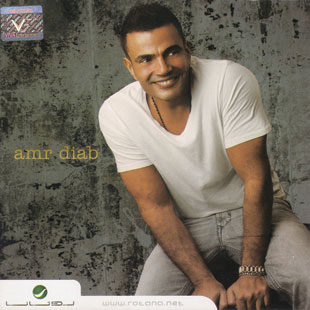
AMR DIAB

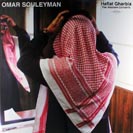
OMAR SOULEYMAN
 MURDER EYEZ
MURDER EYEZThe Revolution
Big Change Recordz
 Murder Eyez is NWA and Public Enemy combined on many different levels. He has shocked and challenged Syria’s hip-hop community for years. As a rapper in a conservative society that grew up listening to the Syrian equivalents of Lawrence Welk, having your message taken seriously is a constant uphill slog. But Murder Eyez has the look, the sound, and, most importantly, the earnest sentiment. He’s been calling for justice for years and has had his share of run-ins with Assad’s regime, though he’s released pro-government tracks as well. His message has been misunderstood and championed by all sides of the conflict, but Murder Eyez stands hard, spittin’ flow and keepin’ it real, in an environment that only seems to stunt any creative growth—which is both brave and powerful.
Murder Eyez is NWA and Public Enemy combined on many different levels. He has shocked and challenged Syria’s hip-hop community for years. As a rapper in a conservative society that grew up listening to the Syrian equivalents of Lawrence Welk, having your message taken seriously is a constant uphill slog. But Murder Eyez has the look, the sound, and, most importantly, the earnest sentiment. He’s been calling for justice for years and has had his share of run-ins with Assad’s regime, though he’s released pro-government tracks as well. His message has been misunderstood and championed by all sides of the conflict, but Murder Eyez stands hard, spittin’ flow and keepin’ it real, in an environment that only seems to stunt any creative growth—which is both brave and powerful.SHALIB DANYALS
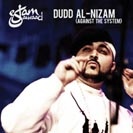 ESLAM JAWAAD
ESLAM JAWAADDudd al-Nizam
Self-released
 Rap is a tough genre to translate into other cultures. Maybe it’s just me, but there’s just something a little disconcerting about hip-hop in other languages. Weirdo baroque harpsichord sample in the background notwithstanding, this song (released via YouTube) from Syrian-Lebanese rapper Eslam Jawaad is notable for being on the fence about the revolution. It’s not explicitly pro-regime, but it advocates stability and caution—not something the genre usually represents. Slick production and manufactured beats abound; the song isn’t very noteworthy aside from its surprising stance, nor is there anything too offensive about it. Jawaad’s delivery is gruff, but it certainly isn’t bad. But come on, rap that advises against change is lame. Hip-hop should inspire strength and the desire to speak your mind, regardless of the consequence, athough in this case, the consequences kill, so…
Rap is a tough genre to translate into other cultures. Maybe it’s just me, but there’s just something a little disconcerting about hip-hop in other languages. Weirdo baroque harpsichord sample in the background notwithstanding, this song (released via YouTube) from Syrian-Lebanese rapper Eslam Jawaad is notable for being on the fence about the revolution. It’s not explicitly pro-regime, but it advocates stability and caution—not something the genre usually represents. Slick production and manufactured beats abound; the song isn’t very noteworthy aside from its surprising stance, nor is there anything too offensive about it. Jawaad’s delivery is gruff, but it certainly isn’t bad. But come on, rap that advises against change is lame. Hip-hop should inspire strength and the desire to speak your mind, regardless of the consequence, athough in this case, the consequences kill, so…NADA HERBLY
 ASALA
ASALAShakhseya Anida
StarGate
 When I think “Arabic pop music,” I immediately think of a woman’s voice crooning a long, drawn out “habiiiiiiiibiiiiiii” (“my dear”), with extra syllables inserted, Xtina-style. And that’s exactly how the recently released Asala record begins, over the backdrop of Latin-tinged, house-influenced beats. So, as you’d suspect, nothing too groundbreaking here. It’s pretty catchy, but not overwhelmingly deep or life-changing. Regardless, you’ve got to give the lady credit: In a fiercely patriarchal society, Asala has weathered quite a few tabloid scandals, openly criticized the Assad regime from her current home in Bahrain, and still looks pretty great for being over 40. It’s kind of funny: The Middle East has such a reputation for suppressing women’s expression, but man, those outspoken, opinionated Arabic ladies are out there, and they are going to tell you what they think, and probably feed you way too much at the same time. I’m down for all that shit.
When I think “Arabic pop music,” I immediately think of a woman’s voice crooning a long, drawn out “habiiiiiiiibiiiiiii” (“my dear”), with extra syllables inserted, Xtina-style. And that’s exactly how the recently released Asala record begins, over the backdrop of Latin-tinged, house-influenced beats. So, as you’d suspect, nothing too groundbreaking here. It’s pretty catchy, but not overwhelmingly deep or life-changing. Regardless, you’ve got to give the lady credit: In a fiercely patriarchal society, Asala has weathered quite a few tabloid scandals, openly criticized the Assad regime from her current home in Bahrain, and still looks pretty great for being over 40. It’s kind of funny: The Middle East has such a reputation for suppressing women’s expression, but man, those outspoken, opinionated Arabic ladies are out there, and they are going to tell you what they think, and probably feed you way too much at the same time. I’m down for all that shit.NADA HERBLY
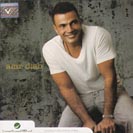 AMR DIAB
AMR DIABBanadeek Ta’ala
Rotana
 Everyone loves a good tan on a great chest. Pecs or boobs, it doesn’t matter—they both look better slightly exposed, glistening, and darkened. The timeless look of bronzed skin speaks universally to anyone, anywhere. Whether naturally kissed by the sun or sprayed to perfection, a quality tan can turn the tame into a tiger. And, my friends, Amr Diab is Egypt’s official Tan Ambassador. He has been making music since the 80s and has the legacy to prove it. So, of course, he wears his shirt half-unbuttoned to bare his chest, has a sculpted right eyebrow, is groomed perfectly, and provides monthly exercise routines via his website and online newsletter, all while supplying some of the most popular music in the Middle East. Amr combines the energy of the tanning community with traditional Arabic beats and rhythms, creating some of the most seriously energetic and romantic dance music in the world. His dedication to the craft has inspired many a Syrian lady to shake it on the dance floor, and Syrian men tend to wonder why their women fuss over this diesel, tan Egyptian.
Everyone loves a good tan on a great chest. Pecs or boobs, it doesn’t matter—they both look better slightly exposed, glistening, and darkened. The timeless look of bronzed skin speaks universally to anyone, anywhere. Whether naturally kissed by the sun or sprayed to perfection, a quality tan can turn the tame into a tiger. And, my friends, Amr Diab is Egypt’s official Tan Ambassador. He has been making music since the 80s and has the legacy to prove it. So, of course, he wears his shirt half-unbuttoned to bare his chest, has a sculpted right eyebrow, is groomed perfectly, and provides monthly exercise routines via his website and online newsletter, all while supplying some of the most popular music in the Middle East. Amr combines the energy of the tanning community with traditional Arabic beats and rhythms, creating some of the most seriously energetic and romantic dance music in the world. His dedication to the craft has inspired many a Syrian lady to shake it on the dance floor, and Syrian men tend to wonder why their women fuss over this diesel, tan Egyptian.SHALIB DANYALS
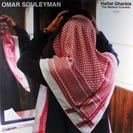 OMAR SOULEYMAN
OMAR SOULEYMANHaflat Gharbia: The Western Concerts
Sublime Frequencies
 A few years ago, if I had to pick a genre of music that I thought would never have the slightest chance of crossing over to American hipster audiences, Syrian dabke wedding music would easily top the list. Yet here we are, and Omar Souleyman’s live record of his concerts in Europe, Australia, and the US is out on Sublime Frequencies. Frenetic synth jam freak-outs and electric sax solos back Omar’s shouted lyrics and repeated cries of “Yalla!” (It means “come on” and it’s something Arabic people say. A lot.) Most of the songs are more than six minutes long, and it’s kind of what I’d expect to hear at your weird aunt’s wedding. But like the music at the aforementioned wedding, it’s almost impossible not to dance when it starts playing. No matter how embarrassed you are. Also, you are probably wearing way too much makeup.
A few years ago, if I had to pick a genre of music that I thought would never have the slightest chance of crossing over to American hipster audiences, Syrian dabke wedding music would easily top the list. Yet here we are, and Omar Souleyman’s live record of his concerts in Europe, Australia, and the US is out on Sublime Frequencies. Frenetic synth jam freak-outs and electric sax solos back Omar’s shouted lyrics and repeated cries of “Yalla!” (It means “come on” and it’s something Arabic people say. A lot.) Most of the songs are more than six minutes long, and it’s kind of what I’d expect to hear at your weird aunt’s wedding. But like the music at the aforementioned wedding, it’s almost impossible not to dance when it starts playing. No matter how embarrassed you are. Also, you are probably wearing way too much makeup.NADA HERBLY
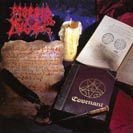 MORBID ANGEL
MORBID ANGELCovenant
Giant
 For decades, information was heavily restricted inside Syria, affecting all aspects of society—from college textbooks to music. The government ruled under what they called an “emergency law,” allowing anyone at anytime to be rounded up if it was thought that he or she posed, or could pose, a threat to the regime. Syria’s metal scene was perpetually under suspicion; if you dressed in black and had long hair, you were a Satanist. You couldn’t congregate in public, so a handful of small record stores served as meeting places for fans. Syrians tend to gravitate toward power metal like Stratovarius and traditional American death metal like Deicide and Morbid Angel. A handful of death-metal guys in Damascus were forced to cut their hair and were sentenced to bizarre punishments like standing in a dark room for six hours a day for months on end. They now have short hair and wear polo shirts while thrashing in the privacy of their own homes.
For decades, information was heavily restricted inside Syria, affecting all aspects of society—from college textbooks to music. The government ruled under what they called an “emergency law,” allowing anyone at anytime to be rounded up if it was thought that he or she posed, or could pose, a threat to the regime. Syria’s metal scene was perpetually under suspicion; if you dressed in black and had long hair, you were a Satanist. You couldn’t congregate in public, so a handful of small record stores served as meeting places for fans. Syrians tend to gravitate toward power metal like Stratovarius and traditional American death metal like Deicide and Morbid Angel. A handful of death-metal guys in Damascus were forced to cut their hair and were sentenced to bizarre punishments like standing in a dark room for six hours a day for months on end. They now have short hair and wear polo shirts while thrashing in the privacy of their own homes.SHALIB DANYALS
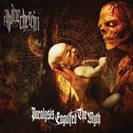 ABIDETHEREIN
ABIDETHEREINParalysis Engulfed the Myth
Domestic Genocide
 “We play heavy metal because our lives are heavy metal.” That’s what Reda Zine, a founding member of Morocco’s metal scene, explained to writer Mark LeVine in his 2008 book Heavy Metal Islam. If the past 19 months in Syria are any indication, one might expect a new generation of angry yet resilient metalheads to rise from the ashes of civil war. One such band to look out for is Abidetherein from Damascus who formed in early 2010. They call their sound black metal “with some Oriental influences,” and in their debut album the East’s oud and darbuka (a type of drum) jibe with the West’s fast surf-guitar riffs, reminiscent of a certain Lebanese-American named Richard Monsour, aka Dick Dale. But there’s enough rage in the shrieks and frenzied rhythms (with a hat tilt toward French counterparts Deathspell Omega) to prevent this from sounding like a feel-good “fusion” record you’d have found on the shelves of your defunct local Borders book store. Alhamdullilah (Thank God).
“We play heavy metal because our lives are heavy metal.” That’s what Reda Zine, a founding member of Morocco’s metal scene, explained to writer Mark LeVine in his 2008 book Heavy Metal Islam. If the past 19 months in Syria are any indication, one might expect a new generation of angry yet resilient metalheads to rise from the ashes of civil war. One such band to look out for is Abidetherein from Damascus who formed in early 2010. They call their sound black metal “with some Oriental influences,” and in their debut album the East’s oud and darbuka (a type of drum) jibe with the West’s fast surf-guitar riffs, reminiscent of a certain Lebanese-American named Richard Monsour, aka Dick Dale. But there’s enough rage in the shrieks and frenzied rhythms (with a hat tilt toward French counterparts Deathspell Omega) to prevent this from sounding like a feel-good “fusion” record you’d have found on the shelves of your defunct local Borders book store. Alhamdullilah (Thank God).ENASS KHANSA

 MOHAMED KHAIRY
MOHAMED KHAIRYAndy Amal Bokra
Top Music Production
 Mohamed is Syria’s answer to Italian-Canadian crooner Michael Bublé. He sings traditional Syrian songs to packed crowds all over the country. His talent was recognized early on, and he was taken under the wing of legendary singer Sabah Fakhri. Mohamed has collaborated with Syria’s Murder Eyez and is a member of the Castle Productions family. With the realities of war raging daily and a likely forecast of long-term instability, Syrians should take comfort knowing that a dedicated new generation of musicians has grabbed the torch to proudly keep the Syrian musical legacy burning among car bombs, gun fights, and bloodshed.
Mohamed is Syria’s answer to Italian-Canadian crooner Michael Bublé. He sings traditional Syrian songs to packed crowds all over the country. His talent was recognized early on, and he was taken under the wing of legendary singer Sabah Fakhri. Mohamed has collaborated with Syria’s Murder Eyez and is a member of the Castle Productions family. With the realities of war raging daily and a likely forecast of long-term instability, Syrians should take comfort knowing that a dedicated new generation of musicians has grabbed the torch to proudly keep the Syrian musical legacy burning among car bombs, gun fights, and bloodshed.SHALIB DANYALS
 SAMIH SHUQAIR
SAMIH SHUQAIRYa Haif
Self-released
 The internet has played an important role in the Syrian uprising of the past 19 months, most notably in the dissemination of images and first-hand accounts, since the Syrian government has not been too kind to reporters. YouTube in particular has become an outlet for protest songs to circulate. “Ya Haif” (“How Ridiculous”) is a sparse, mournful, yet fiery indictment of the Syrian government’s actions on what is known as “Black Wednesday” in Daraa, where the revolt first began last year. “They shot us dead with bullets, we were killed by our brothers,” sings Samih over a backdrop of oud and sparse percussion. It is repetitive but driving and insistent, reminiscent of the fingerpicking American protest ballads of the 60s but perhaps angrier and more sorrowful. Still, Samih alludes to a brighter future for Syria: “Hope is achievable.”
The internet has played an important role in the Syrian uprising of the past 19 months, most notably in the dissemination of images and first-hand accounts, since the Syrian government has not been too kind to reporters. YouTube in particular has become an outlet for protest songs to circulate. “Ya Haif” (“How Ridiculous”) is a sparse, mournful, yet fiery indictment of the Syrian government’s actions on what is known as “Black Wednesday” in Daraa, where the revolt first began last year. “They shot us dead with bullets, we were killed by our brothers,” sings Samih over a backdrop of oud and sparse percussion. It is repetitive but driving and insistent, reminiscent of the fingerpicking American protest ballads of the 60s but perhaps angrier and more sorrowful. Still, Samih alludes to a brighter future for Syria: “Hope is achievable.”NADA HERBLY
 SAMER GABRO
SAMER GABROI Love Syria 2011
Self-released
 Commemorative quilts, flags, coins, mugs, shirts, stickers, and haircuts allowed the American people to passively express their emotional scarring from the attacks of September 11, 2011. “These colors don’t run” turned into “These colors sing… in the face of terrorists!” “Take my liberty, you son of a bitch???!!! How ’bout a dose of Lee Greenwood in your face!!! Terrorize deez!” The soul of America had been crushed by Osama bin Laden, and musicians took to the studio, for better or worse, in hopes of inspiring and healing. Samer Gabro has done Syria the same service with the “timeless classic” I Love Syria 2011. Gabro’s vibrato has become a national rallying point, unifying the people as war ravages their ancient land. Quilts are to follow, I’m sure.
Commemorative quilts, flags, coins, mugs, shirts, stickers, and haircuts allowed the American people to passively express their emotional scarring from the attacks of September 11, 2011. “These colors don’t run” turned into “These colors sing… in the face of terrorists!” “Take my liberty, you son of a bitch???!!! How ’bout a dose of Lee Greenwood in your face!!! Terrorize deez!” The soul of America had been crushed by Osama bin Laden, and musicians took to the studio, for better or worse, in hopes of inspiring and healing. Samer Gabro has done Syria the same service with the “timeless classic” I Love Syria 2011. Gabro’s vibrato has become a national rallying point, unifying the people as war ravages their ancient land. Quilts are to follow, I’m sure.SHALIB DANYALS
 NANCY AJRAMD
NANCY AJRAMDFi Hagat
Qanawat
 Faith is admitting we don’t know everything, coupled with a willingness to accept what we don’t know. Whether it’s faith in string theory, quantum mechanics, Jesus, or Krishna, faith is humanity’s attempt to comprehend itself. Faith can unify and divide, create and destroy, liberate and enslave. However, men of all faiths can agree that Middle Eastern broads are hot. Men of all faiths can also agree that SINGING Middle Eastern women are EXTRA hot. And men of all faiths are in absolute agreement that Nancy Ajram is one of the hottest singing broads from the Middle Easter ever, period. Nancy hails from Lebanon and is God’s reminder that women need to be seen and heard. A commercial vixen to be reckoned with, she has nearly 3 million Facebook likes and her “Fi Hagat” video has received close to 28 million views. Even sexier, Nancy is blessed with all the right moves in all the right places, inspiring Syrian men and women alike. It’s no wonder a poem about a hot Lebanese lady made it into the Bible.
Faith is admitting we don’t know everything, coupled with a willingness to accept what we don’t know. Whether it’s faith in string theory, quantum mechanics, Jesus, or Krishna, faith is humanity’s attempt to comprehend itself. Faith can unify and divide, create and destroy, liberate and enslave. However, men of all faiths can agree that Middle Eastern broads are hot. Men of all faiths can also agree that SINGING Middle Eastern women are EXTRA hot. And men of all faiths are in absolute agreement that Nancy Ajram is one of the hottest singing broads from the Middle Easter ever, period. Nancy hails from Lebanon and is God’s reminder that women need to be seen and heard. A commercial vixen to be reckoned with, she has nearly 3 million Facebook likes and her “Fi Hagat” video has received close to 28 million views. Even sexier, Nancy is blessed with all the right moves in all the right places, inspiring Syrian men and women alike. It’s no wonder a poem about a hot Lebanese lady made it into the Bible.SHALIB DANYALS
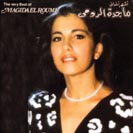 MAJIDA EL ROUMI
MAJIDA EL ROUMIVery Best of
EMI Arabia
 Remember the scene from Saving Private Ryan where Tom Hanks plays an Édith Piaf song on an old phonograph? Édith’s voice echoing through the decimated village provided soldiers with a moment of calm amid the insanities of war. Music by Majida El Roumi provides the same sentiment for Syrians. She’s been an international voice for decades, and in 2001 committed to service by becoming a food and agricultural organization ambassador for the UN. Syrians young and old find solace in her songs as they struggle to survive daily chaos.
Remember the scene from Saving Private Ryan where Tom Hanks plays an Édith Piaf song on an old phonograph? Édith’s voice echoing through the decimated village provided soldiers with a moment of calm amid the insanities of war. Music by Majida El Roumi provides the same sentiment for Syrians. She’s been an international voice for decades, and in 2001 committed to service by becoming a food and agricultural organization ambassador for the UN. Syrians young and old find solace in her songs as they struggle to survive daily chaos.SHALIB DANYALS

 BASSEL AL-HARIRI
BASSEL AL-HARIRIMusic and Light
Self-released
 The adage of “Don’t judge a book by its cover” transcends time and place, and the same goes for the phrase “Don’t judge a Syrian violin virtuoso by his hat.” Bassel Hariri is the 100-percent total package. He plays everything from the classics to jazz to hip-hop, and he plays them all well. His first recording was at the age of 13, and Bassel had charmed governments, royalty, and fans all over the Mediterranean by his mid-20s. Recognized as a prized member of Syria’s new musical generation, Bassel is respected by peers and elders alike, even if he dons a goofy straw hat every now and then.
The adage of “Don’t judge a book by its cover” transcends time and place, and the same goes for the phrase “Don’t judge a Syrian violin virtuoso by his hat.” Bassel Hariri is the 100-percent total package. He plays everything from the classics to jazz to hip-hop, and he plays them all well. His first recording was at the age of 13, and Bassel had charmed governments, royalty, and fans all over the Mediterranean by his mid-20s. Recognized as a prized member of Syria’s new musical generation, Bassel is respected by peers and elders alike, even if he dons a goofy straw hat every now and then.SHALIB DANYALS
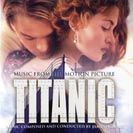 VARIOUS ARTISTS
VARIOUS ARTISTSTitanic: Music from the Motion Picture
Sony
 So you’re living in Syria, working for Assad’s highly feared Mukhabarat. You’re a badass with one of the most feared positions in the country. Someone’s speaking against the regime—“Come with me!” Someone’s logging into Facebook—“You are going to jail for the rest of your life, nerd!” Your job is tough, and you are tougher. Day-to-day life can take its toll, and you need a soundtrack to channel your complex range of emotions—a soundtrack to provide a voice to your innermost thoughts. You’re sure that someone somewhere has captured your emotions through song, and you need to hear it. For many Syrians, that person is Celine Dion.
So you’re living in Syria, working for Assad’s highly feared Mukhabarat. You’re a badass with one of the most feared positions in the country. Someone’s speaking against the regime—“Come with me!” Someone’s logging into Facebook—“You are going to jail for the rest of your life, nerd!” Your job is tough, and you are tougher. Day-to-day life can take its toll, and you need a soundtrack to channel your complex range of emotions—a soundtrack to provide a voice to your innermost thoughts. You’re sure that someone somewhere has captured your emotions through song, and you need to hear it. For many Syrians, that person is Celine Dion.Aside from offering relief in the form of the perfect combination of vocals and wind instruments, Ms. Dion also provides the solid comfort of possessing firsthand knowledge of the culture itself. Her husband and manager, René Angélil, has a Syrian daddy. Perhaps Celine herself should personally call Assad, offering salvation to his devastated nation by holding a free concert in Damascus at which she will appease all sides with a wave of her hand and the serenity of her voice—“Near, far, wherever you are…”
SHALIB DANYALS
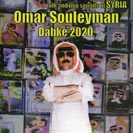 OMAR SOULEYMAN
OMAR SOULEYMANDabke 2020: Folk and Pop Sounds of Syria
Sublime Frequencies
 When a Ugandan American suggested that I listen to Omar Souleyman following a mention of Syria’s most famous wedding singer via a Björk interview, I first thought he was referring to Omar Suleiman, the late spy chief who served a brief tenure as vice president of Egypt during the January 25 Revolution and who passed away due to heart and lung complications in July. My friends from Damascus had never heard of him either, which speaks both to his hyperlocal roots—which stem from the northeastern country province of Hassake—and to the fact that music, art, and revolutionary fervor are not confined to Syria’s capital. And the fact that he has released more than 500 albums throughout his career—and that we had to list him under two distinct genres in this review section—speaks to his quite frankly insane prolificacy. My first listen to the frenetic, groove-affirming Dabke 2020: Folk and Pop Sounds of Syria transported me back to the distinct sounds of the modern Syrian wedding: Think a techno version of an ululation by way of a Korg synthesizer, followed by the sound of syncopated heels grating layers of paint off the dance floor. Whether responding to the daily prayer call, fasting during Ramadan, or lingering at a café over a water pipe and palpitation-inducing Turkish coffee, rituals very much matter in Syria, as they do throughout the Middle East. But Omar, as he proved at a recent packed Hollywood Bowl gig at which he opened for the equally dance-worthy Hot Chip, is more than just a “Syrian wedding singer”/current hipster darling. His words invoke the daily rituals of life—love, pain, the mundane—and there are no themes more universal than all that crap.
When a Ugandan American suggested that I listen to Omar Souleyman following a mention of Syria’s most famous wedding singer via a Björk interview, I first thought he was referring to Omar Suleiman, the late spy chief who served a brief tenure as vice president of Egypt during the January 25 Revolution and who passed away due to heart and lung complications in July. My friends from Damascus had never heard of him either, which speaks both to his hyperlocal roots—which stem from the northeastern country province of Hassake—and to the fact that music, art, and revolutionary fervor are not confined to Syria’s capital. And the fact that he has released more than 500 albums throughout his career—and that we had to list him under two distinct genres in this review section—speaks to his quite frankly insane prolificacy. My first listen to the frenetic, groove-affirming Dabke 2020: Folk and Pop Sounds of Syria transported me back to the distinct sounds of the modern Syrian wedding: Think a techno version of an ululation by way of a Korg synthesizer, followed by the sound of syncopated heels grating layers of paint off the dance floor. Whether responding to the daily prayer call, fasting during Ramadan, or lingering at a café over a water pipe and palpitation-inducing Turkish coffee, rituals very much matter in Syria, as they do throughout the Middle East. But Omar, as he proved at a recent packed Hollywood Bowl gig at which he opened for the equally dance-worthy Hot Chip, is more than just a “Syrian wedding singer”/current hipster darling. His words invoke the daily rituals of life—love, pain, the mundane—and there are no themes more universal than all that crap.ENASS KHANSA




